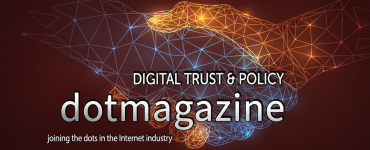- Taking stock after three years: German law only created losers
- Directive at a European level will create massive problems
- eco survey: 87% want to continue to use the Internet as a source of information

The discussion on new related rights on a European level, similar to the ancillary copyright for publishers in Germany, is starting to turn into a farce, according to eco – Association of the Internet Industry. “It is becoming increasingly clear that the introduction of ancillary copyright in Germany isn’t benefitting anyone,” Oliver Süme, eco Director Policy & Law, says. “It isn’t going to get any better by being introduced and even extended at the European level.”
Taking stock after three years: German law only created losers
The controversial ancillary copyright for publishers was introduced three years ago in Germany. Publishers were given the right to demand payment for the use of text extracts – as used mainly by search engines. A recently published statement by the German collective rights society Media, which represents publishers in their dealings with search engines, made clear that the small amount of revenue generated by the ancillary copyright law has not actually been paid to the publishers yet. “The thing that all of the experts warned about years ago has actually happened: Ancillary copyright isn’t workable in practice and has only led to losers. It cannot be used as a blueprint for an unnecessary European version,” Süme expounds.
Directive at a European level will create massive problems

The EU foresees new European related rights for publishers, which could have negative consequences for the industry, users and those creating content. The exact parameters of the planned ancillary copyright has not yet been specified. The EU Commission’s consultation on the issue finished in mid-June 2016.
Such related rights for all types of publications and publishers would be much more harmful than the existing copyright regulations, as it would be more extensive and would impact on more areas of use and more stakeholders. Süme cautioned against its introduction: “A new, even more extensive ancillary copyright on the European level could become a handbrake for the information society as a whole and continuing digitalization: Massive legal uncertainty looms for all involved.”
eco survey: 87% want to continue to use the Internet as a source of information

“Even if the existing ancillary copyright has not yet caused major damage – the danger it poses is immense,” Süme says. There are still many open questions on how to interpret the law, as well as ongoing court cases.
87 percent of Germans want to continue to use the Internet as a source of information in future, and for the exchange and dissemination of information, according to a recent survey carried out by the polling insitute YouGov on behalf of eco. “With new extended ancillary copyright on the EU level, the informational freedom of users would be significantly curtailed,” Süme criticizes.
This would impact on the majority of Internet users. “Search engines in the Internet have particular importance for how easy it is to find information,” Süme stresses. According to the eco survey, 49 percent of respondents use search engines daily – and 38 percent weekly – in order to inform themselves about current topics or news.
Other articles on eco International on the topic of copyright and related rights.




